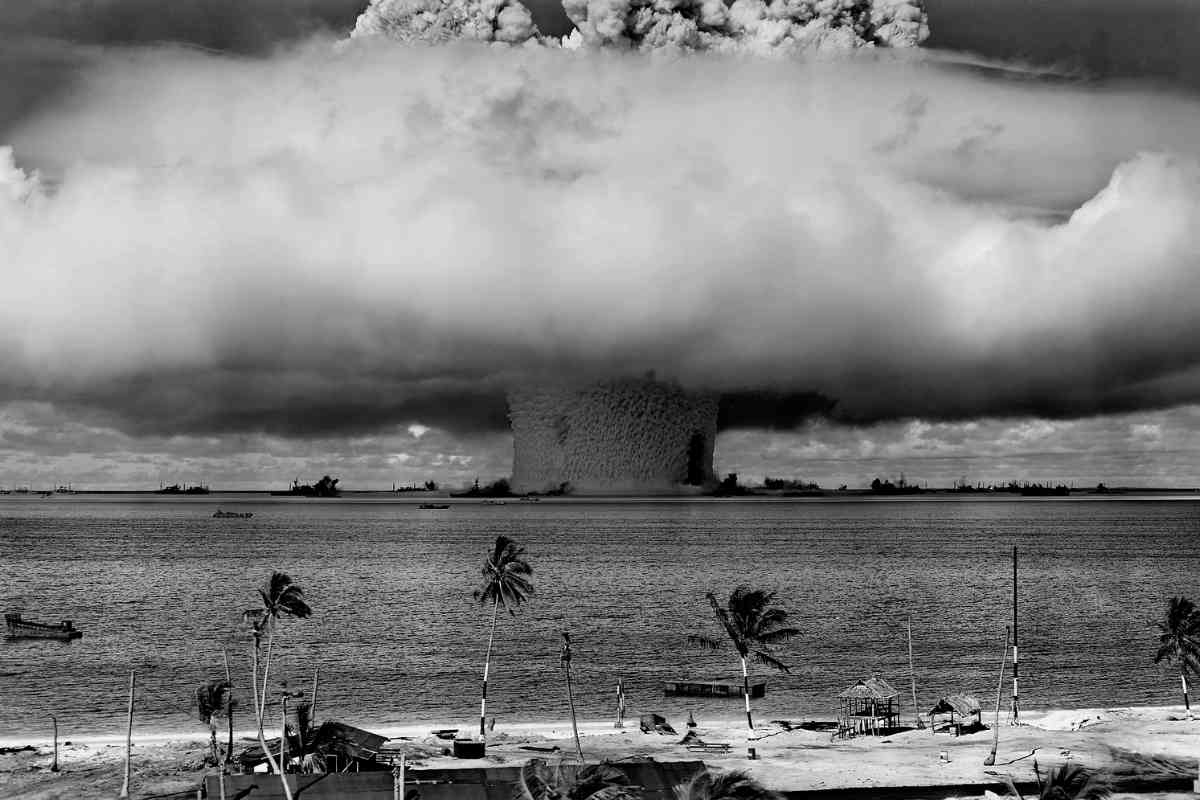
Another good reason not to start.
It may not be such a pleasant announcement, but the possibility of a real nuclear war breaking out is unfortunately not inconceivable. Several major powers, as well as somewhat smaller countries, have heavy artillery ready in case tensions run high. It is of course no surprise that it will have unprecedented consequences if these disastrous nuclear weapons are actually deployed. But in a new study researchers come up with another good reason not to get started.
Nuclear winter
As early as the 1980s, scientists discovered that the large amounts of particulate matter released into the atmosphere as a result of nuclear war could lead to a so-called nuclear winter. The soot particles will be blown by the wind around the world within weeks. This blocks the sunlight, making it very dark and also quite cold. Conditions on our planet will be far from pleasant. It will completely change the Earth’s climate, also disrupting the rhythm of monsoons and El Niños. Such a nuclear winter can also ensure that fewer plants grow. This can lead to food scarcity in both humans and animals.
Study
While that sounds pretty menacing, of course, in a new study, researchers show that the atmospheric effects of global nuclear war are even more serious than previously thought. In the study, the researchers used newly developed computer techniques to model the climate in order to learn more about the effects of a hypothetical nuclear war on the stratosphere and the amount of UV radiation reaching the Earth’s surface. The researchers assumed two scenarios: 1) a nuclear war between India and Pakistan in which about 5 megatons of smoke is pumped into the air and 2) a nuclear war between the superpowers the United States and Russia, in which about 150 megatons of smoke are released. .
Ozone
The researchers found that the smoke released by a global nuclear war will destroy a bizarrely large part of the ozone layer. As much as 75 percent of the ozone layer will disappear. But even if ‘just’ a regional nuclear war breaks out, we will have to pay for this with an ozone loss of 25 percent. It will then take about twelve years for this to recover.
The disappearance of our ozone layer would be a major disaster. The ozone layer is located in the stratosphere, at about 40 kilometers altitude. This protects us against harmful UV radiation and is therefore very important. When this UV radiation does penetrate, high levels can cause certain types of skin cancer, cataracts and immunological disorders. The ozone layer also protects terrestrial and aquatic ecosystems, as well as agriculture.
The massive injection of smoke into the stratosphere will initially lead to falling temperatures, because the soot particles block out sunlight. This will initially also protect the planet from harmful UV radiation. But within a few years, the smoke will slowly dissolve, allowing much more UV radiation to penetrate the ozone layer we have crushed.
Changing circumstances
It means that we then have to prepare for a huge turnaround. “Conditions will change dramatically,” said researcher Charles Bardeen. “And adaptations that may work in the beginning won’t help when the temperature rises again and the UV radiation increases. When the smoke clears, we face an explosion of UV, with completely different effects on human health and agriculture.”
grim
In the study, the researchers thus paint an even more grim picture of the aftermath of a global nuclear war than previous studies. “In addition to all the fatalities that will occur almost immediately, the climate impacts will be widespread,” Bardeen concludes. “We don’t just see these locally, at the place where the war is taking place. They are global, so we are all affected by them.”
It is yet another reminder of the amount of doom and destruction that a full-scale nuclear war can bring. So we better not start…
Source material:
“ Smoke from unclear war would devastate ozone layer, alter climate ” – NCAR UCAR
Image at the top of this article: WikiImages via Pixabay